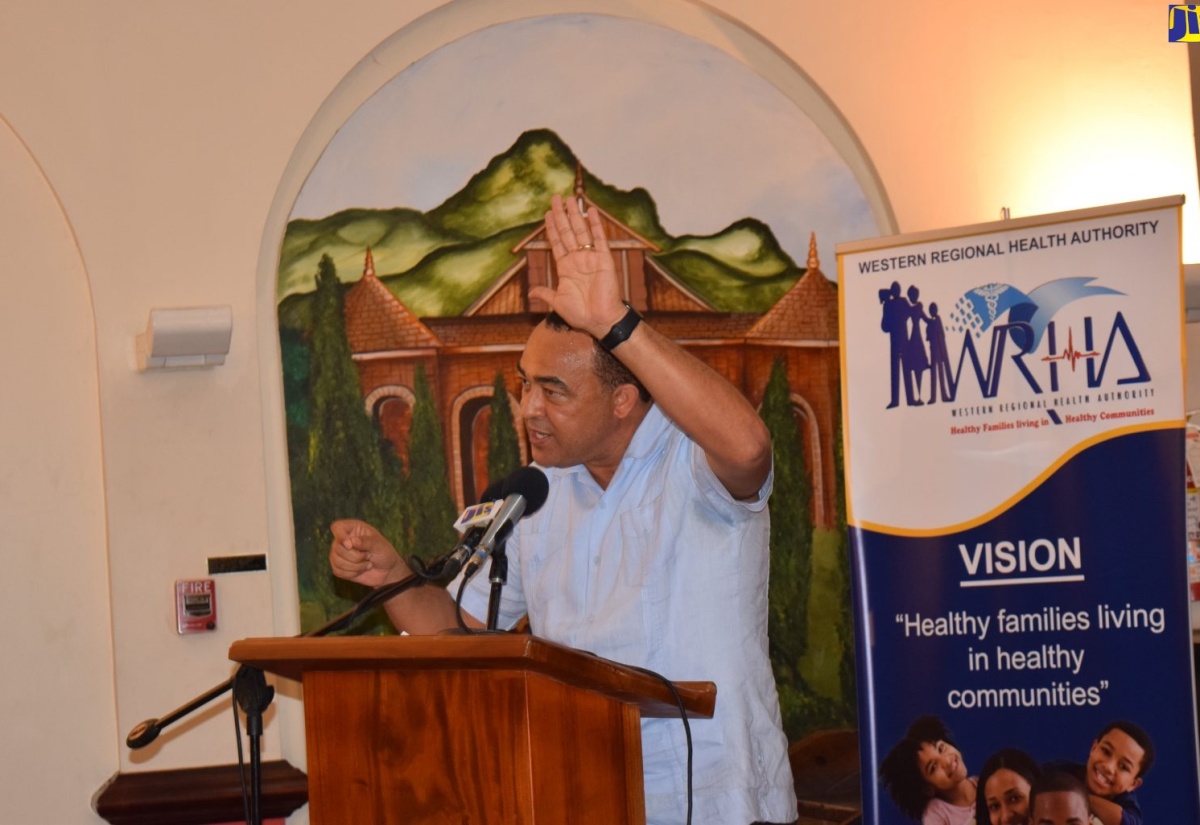NCDs An Economic Burden – Dr. Tufton
By: , May 19, 2019The Key Point:
The Facts
- He said data suggest that it will cost the country some $77 billion over the next 13 to 15 years to deal with treatment and loss of productivity associated with diabetes and cardiovascular diseases alone.
- Dr. Tufton said that the financial burden on the patient and the family is also high.
The Full Story
Minister of Health and Wellness, Dr. the Hon. Christopher Tufton, says the prevalence of non-communicable diseases (NCDs) is placing an economic burden on the country.
He said data suggest that it will cost the country some $77 billion over the next 13 to 15 years to deal with treatment and loss of productivity associated with diabetes and cardiovascular diseases alone.
Dr. Tufton said that the financial burden on the patient and the family is also high.
“It is said that if you have a non-communicable or a lifestyle disease, you should be prepared to spend up to a third of your disposable income in treating with that particular ailment,” he pointed out.
“You are talking about your bottom line here…you are talking about your pocket. Not to mention the pain and the suffering and the inconvenience from having to go to the doctor or take 15 tablets a day. Get on our ‘Jamaica Moves’ programme… get up and start a productive and healthy lifestyle, if you haven’t yet done so,” he urged.
The Minister was addressing the 25th annual conference of the University Diabetes Outreach Programme (UDOP), held recently at the Jewel Resort in Runaway Bay, St. Ann.
He noted that diabetes, like other NCDs, is a serious and potentially life-threatening illness and must be taken seriously.
“Studies have shown that diabetes is the leading cause of death for Jamaicans under the age of 70,” he said.
He is advising persons with diabetes to get screened for eye diseases such as diabetic retinopathy, which can lead to blindness.
Diabetic retinopathy results from damage to the blood vessels in the light-sensitive tissues at the back of the eye.
Director of the UDOP, Professor Errol Morrison, in his address, commended the Ministry’s focus on promoting healthy lifestyle habits for the prevention and management of diabetes and other NCDs.
“Uncontrolled diabetes can lead to problems… including vision loss, amputations, stroke and kidney failure,” he noted.
He highlighted the importance of a healthy diet, avoiding excess sugar and heavy starches such as yam and rice before bedtime.
“There is no substitute for physical activities,” he added, advising that persons should opt to use the stairs as opposed to the elevator and take daily 15 to 20-minute-walks.
According to the World Health Organization (WHO), at least 80 per cent of all heart disease, stroke and Type 2 diabetes and over 40 per cent of cancers would be prevented by eliminating risk factors such as tobacco use, unhealthy diet, physical inactivity and the harmful use of alcohol.
The UDOP is a collaboration involving the University of the West Indies (UWI), University of Technology (UTech) and the Diabetes Association of Jamaica.
This year’s event was focused on diabetes and the heart, and attracted various health professionals, educators, students and persons with diabetes.


